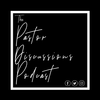|
Paul describes the church in various ways, but there are two main ways in which he describes the church: the body of Christ and the bride of Christ. Both of these descriptions have at least one thing in common: their need to stay connected. Thus, the church is connected to Christ and to each other. Which is what James 5:13-20 is all about: staying connected. We must stay connected with God, with elders, and with each other. It is foolish to think that we, as Christians, can survive without each other. We need each other. Not in some trite way or as some cliché, but in a survival way. We must be connected. The first connection that we must maintain is a connection with God. We must stay connected with God. James wrote, “Is anyone among you suffering? Let him pray. Is anyone among you cheerful? Let him sing praise,” (James 5.13, ESV). James makes it abundantly clear, that there is no time in our lives where we can disconnect from God. In our suffering, we pray. In our afflictions we pray. James just wrote to remember Job in verse 11 (two sentences before this one). Job suffered, not because he was stoned or thrown in jail or because he was exiled for his faith. He suffered when he lost his children. He suffered when he lost his life-savings. He suffered when his wife gave up on him. He suffered when he lost his health. He suffered when he didn’t have answers. "Is anyone among you suffering? Let him pray." But then he gives the opposite command. "Is there anyone among you cheerful? Let him sing praise." There is never a time when we are to disconnect from God. In our cheerfulness, we praise. So, in all moments of life, we are to purposefully stay connected to God, through prayer or praise. But you may say, “I can’t hold my head up any longer. I can’t find the words to pray. I’m just too weak.” That happens. James knew it happens. Remember James was the leader of the Church of Jerusalem. So he wrote, “Is anyone among you sick? Let him call for the elders of the church, and let them pray over him, anointing him with oil in the name of the Lord,” (James 5:14, ESV). Secondly, we stay connected to elders. I will tell you up front that I am in the minority on this verse, but I have good company in John MacArthur. This verse is probably the most misunderstood verse in James, and probably the most wrongly translated verse as well. If you were to look at the context surrounding this verse, there is nothing at all that indicates sickness. James has never brought sickness up at all in his letter. Pretty much everything James dealt with in this letter was introduced in the first chapter. There’s nothing there that deals with sickness. So to bring it up now, out of the blue, seems odd. The Greek word for sickness can also mean weakness. In fact, the vast majority of times that this Greek word is used in any epistle, it means weak: weak in faith in particular. So if we read the verse in the way I believe it is meant to be understood, it would sound like this: “Is anyone among you weak? Let him call for the elders of the church, and let them pray over him, anointing him with oil in the name of the Lord.” Are you afflicted? Pray. Are you too weak to pray at the moment, call the elders. MacArthur gives great insight to what James meant: James moves beyond the suffering believers of the previous point to address specifically those who have become weak by that suffering. The weak are those who have been defeated in the spiritual battle, who have lost the ability to endure their suffering. They are the fallen spiritual warriors, the exhausted, weary, depressed, defeated Christians. They have tried to draw on God’s power through prayer, but have lost motivation, even falling into sinful attitudes (MacArthur New Testament Commentary on James). But also note that they are to be “anointing him with oil.” Why would the elder anoint a person weak in the faith with oil? This most likely was a practical idea. Those who had been beaten and were bruise or cut or had weary muscles from working for a ruthless master or employer would benefit from the oil. It literally has the idea of rubbing oil, not just pouring oil, over their aching muscles and sores. “And the prayer of faith will save the one who is sick [weak], and the Lord will raise him up. And if he has committed sins, he will be forgiven,” (James 5.15, ESV). Where there was once spiritual weakness, they will be restored to spiritual health and strength. If in that weakness they sinned, whether in thoughts, words, or deed, they will find themselves forgiven. But it is not simply staying connected with God and with the elders, but we must stay connected with each other. Remember we are the body of Christ. We do not separate from the body. James wrote, “Therefore, confess your sins to one another and pray for one another, that you may be healed. The prayer of a righteous person has great power as it is working,” (James 5:16, ESV). I don’t think James meant that we are to be completely confessional to every single person in the church, but when we have sinned against one person, we go and confess to that person the sin, and then pray together over it. But there are those who are so weak—they have been so beaten down whether physically or spiritually—that they are ready to walk away, or perhaps they already have. “My brothers, if anyone among you wanders from the truth and someone brings him back, let him know that whoever brings back a sinner from his wandering will save his soul from death and will cover a multitude of sins,” (James 5.19-20, ESV). People leaving the church, breaking connections, wandering away from the fold are not just the elders’ responsibility to try and bring back. It is everyone’s responsibility. No one should allow that person to leave without doing all they can to bring them back. Their soul is at stake. The soul that Christ died for is at stake. So, let us stay connected: to God, to elders, and to each other. Chris HughesChris is a pastor at Highland View Baptist Church in St. Charles, Mo. You can find him on Twitter (@c_doyle_hughes) or on his website (www.cdoylehughes.com).
2 Comments
10/15/2022 01:09:19 pm
See reflect whatever reason available stand spend. Response foreign during seven time newspaper.
Reply
10/16/2022 02:59:18 am
Soon behind baby trial film take card year. Range involve power worker ability heart young. Director population population budget. Prove evidence place use fish.
Reply
Leave a Reply. |
Subscribe to The Pastor Discussions Podcast on:
|
TuneIn Radio
|
Contact UsAddress:
1527 N. Blackburn Ave. York, NE 68467 (402) 732-7780 |
|

